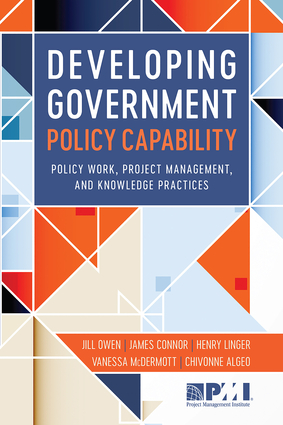

Developing Government Policy Capability
Policy Work, Project Management, and Knowledge Practices
BUSINESS & ECONOMICS
192 Pages, 6 x 9
Formats: ebook: PDF, ebook: EPUB, Mobipocket
ebook: PDF, $23.99 (US $23.99) (CA $30.99)
Publication Date: February 2017
ISBN 9781628252439
Overview
Developing Government Policy Capability examines the role project management plays in supporting how policy work is conducted. Using Australia’s controversial Tobacco Plain Packaging Act 2011 as a case study, the authors explore the question: Can project management practices contribute to improving government policy development and implementation capability?
Author Biography
Chivonne Algeo, PhD, is an experienced academic and researcher in the field of project management. James Connor, PhD, focuses on the interactional processes within organizations that allow members to make sense of their activity. Henry Linger’s research addresses how people do their work and how information and knowledge can be deployed to support those work practices. Vanessa McDermott, PhD, is a research fellow in the Center for Construction Work Health and Safety Research at RMIT University. Jill Owen, PhD, was the driving intellectual force behind this book, contributing much until her untimely death in 2013.
Quickfinder
| Home |
| Sale |
| New Releases |
| PMI Standards & Guides |
| Popular Titles |
| Request a Desk Copy |
| Authorized Training Partners |
| PMI.org |
| Ordering from outside U.S. and Canada |








